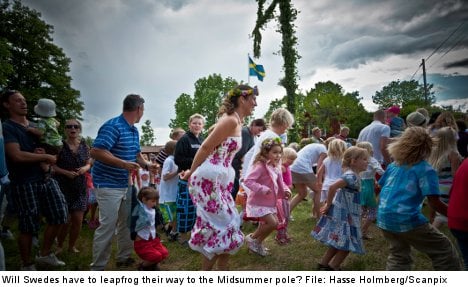Workers are expected to go on strike after employers refused to increase their wages by 1,740 kronor ($270) over three years, according to the Dagens Nyheter newspaper (DN).
A further 1,400 employees are expected to strike from next Saturday if agreements cannot be reached.
The Kommunal union, which represents municipal and county employees, has threatened to halt bus traffic and commuter trains on Wednesday night in Stockholm, Södertälje, and Umeå in northern Sweden.
The red line on Stockholm’s underground network, which covers 36 stops, may also be affected.
If the strikes go ahead, thousands of Swedes will suffer setbacks to their plans for Midsommar Eve on Thursday, a day that marks the start of many Swedes’ long Midsummer weekend, with Friday a national public holiday.
There are even risks that Gothenburg and the Skåne region to the south will be hit by the strikes, but Stockholm would be hardest hit.
“This will have gigantic consequences,” regional transport network SL spokeswoman Lovisa Åbom told the TT news agency.
On a usual day in Stockholm, 770,000 people use the public transport services that may be affected by Wednesday’s potential strike.
Out in Gothenburg, a strike could dash the chances of many Swedes’ plans for getaway trips up along the coastline.
“Midsummer is one of our biggest holiday weekends. Travel is huge, especially up to Bohuslän. It’s already a challenge for us normally,” Västtrafik spokesperson Kristian Lans said.
When asked if people should in fact stay at home for the long weekend,
“That’s up to the individual,” he said.
“But you should be aware that this is an extraordinary situation that we’re unable to influence.”
TT/The Local/og



 Please whitelist us to continue reading.
Please whitelist us to continue reading.
Member comments